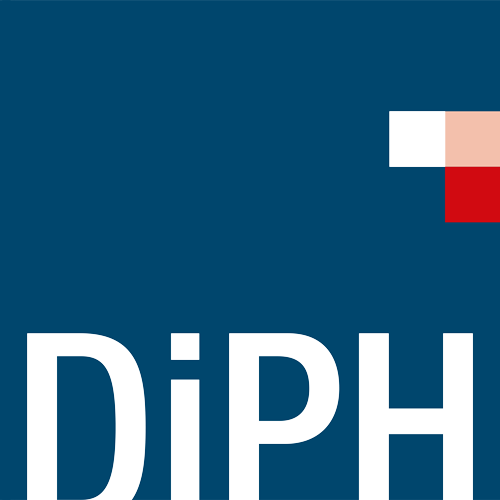More than 150 stakeholders from science, industry and politics met on September 21, 2023 at the Bremen Conference AI in Health for an active exchange on artificial intelligence and health research. For this purpose, the U Bremen Research Alliance, in cooperation with JUST ADD AI, the Transfer Center for Artificial Intelligence BREMEN.AI and the Integrated Health Campus Bremen invited to the Bremen Überseestadt. The LSC DiPH was strongly represented with numerous contributions.
"The state of Bremen has already established itself as a leading location for artificial intelligence," emphasized Bremen's Science Senator Kathrin Moosdorf in the run-up to the conference. The interface between artificial intelligence and health research, which is already characterized by cooperation, is being driven forward in particular by the AI Center for Health Care in the U Bremen Research Alliance, which is funded by the state of Bremen. Here, a networking structure has been created within which Bremen research institutions such as the Fraunhofer Institute for Digital Medicine MEVIS, the Leibniz Institute for Prevention Research and Epidemiology - BIPS, the Leibniz Institute for Materials-Oriented Technologies - IWT and the German Research Center for Artificial Intelligence conduct research together with working groups from the University of Bremen.
"In the AI Center for Health Care, we are developing technologies for the health care of tomorrow. AI is at the center of this as a methodology," explains Prof. Dr.-Ing. Horst Karl Hahn, institute director of Fraunhofer MEVIS and spokesperson for the AI Center for Health Care. Research topics include the improvement of surgical care through robust and user-friendly support systems from the field of AI and multimodal data fusion for the early detection of dementia. Recent research results from the AI Center for Health Care were presented at the conference. Prof. Dr.-Ing. Tanja Schultz, spokesperson of the scientific focus of Minds Media and Machines at the University of Bremen and also spokesperson in the AI Center for Health Care, summarizes the research activities as follows: "Together we are implementing what Bremen stands for: Research and development in AI for the benefit of the individual and for the benefit of the community."
Practical examples of AI use in healthcare in the sessions.
At the heart of AI in Health were four sessions, with topics ranging from individualized healthcare and patient models to technology transfer and the use of AI to improve care processes. JUST ADD AI presented, among other things, how added value can be generated by using ChatGPT to respond to emails in a statutory health insurance environment. A presentation by the Integrated Health Campus provided information on the use of generative AI to create artificial histological skin samples. The technology used here holds out the prospect of improving diagnostic possibilities in the field of pathology. Prof. Dr. Hajo Zeeb, spokesperson of the Leibniz Science Campus Digital Public Health and head of the Department of Prevention and Evaluation at BIPS, outlined together with co-spokesperson Prof. Benjamin Schüz the past, presence and future of AI in the digitization of health data and public health measures. Here, AI offers the opportunity to make the large amounts of health data available and interoperable, he said.
Panel discussion participants see great benefits of AI in healthcare and privacy and ethics as biggest challenges
"If we consistently exploit the opportunities of AI and manage the risks, it will significantly reduce the burden of disease," said Prof. Dr. Lothar Wieler, spokesperson for the Hasso Plattner Institute's Digital Health Cluster, during the conference's lively afternoon panel discussion. Olaf Woggan, CEO of AOK Bremen/Bremerhaven, also thinks AI can help healthcare in a variety of ways. "However, it is important to note that it must be used with special care to ensure data protection and ethics and, above all, quality-assured results," he stressed. Prof. Dr. Iris Pigeot, director of BIPS, sees great potential in AI methods, given that the development of the National Research Data Infrastructure will make cross-sectional health datasets available and provided their use is facilitated by appropriate legislation. "Our bureaucracy and regulatory frenzy will prevent the widespread use of AI in healthcare for a long time to come," fears Roland Becker, CEO of JUST ADD AI. Politicians are called upon to find quick and good solutions for data protection and ethics in dealing with AI in healthcare.
AI in Health conference offered space for exchange between science and industry
The now annual AI in Health conference entered its second round with increased attendance and greater public interest than the previous year. The research and action area of digital health care has taken on greater importance, accelerated by the discernible shortfalls in the Corona pandemic. The AI Center for Health Care includes, among other things, nine interorganizational scientific projects around AI and health as well as measures for science communication and transfer, such as the AI in Health conference.
The University of Bremen and twelve institutes of non-university research funded by the federal and state governments cooperate in the U Bremen Research Alliance. It includes research institutes of the four major German science organizations, i.e. Fraunhofer-Gesellschaft, Helmholtz Association, Leibniz Association and Max Planck Society, as well as the German Research Center for Artificial Intelligence. Collaboration in the U Bremen Research Alliance spans four key scientific areas and thus literally "from the deep sea to outer space".








